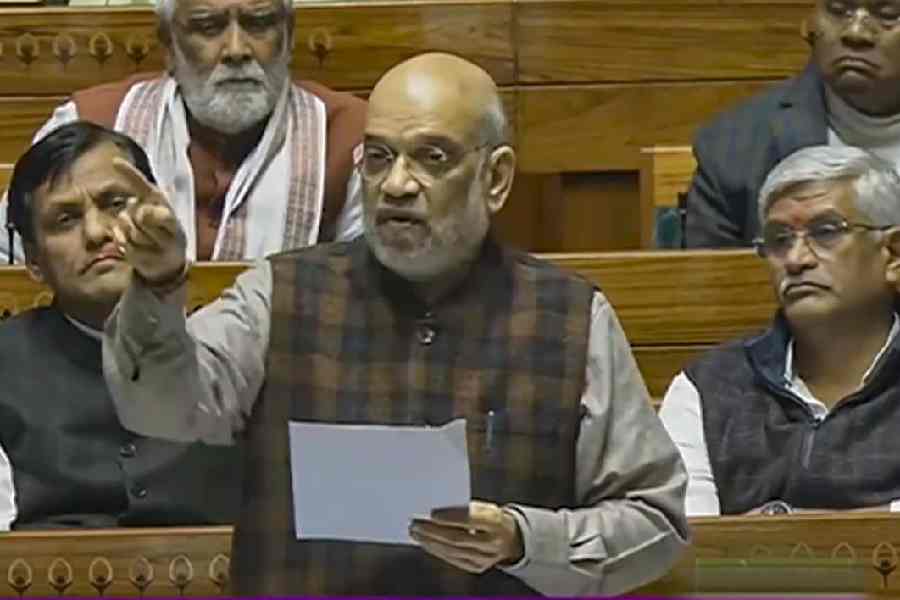Union home minister Amit Shah on Saturday said India would fence its border with Myanmar and discontinue the free movement agreement, adding that the border would be "protected like the Bangladesh frontier".
"The India-Myanmar border will be protected like the Bangladesh frontier. The Centre will stop the free movement with Myanmar," Shah said while addressing the passing-out parade of the first batch of five newly constituted Assam Police commando battalions in Tezpur, Assam.
The free movement regime (FMR) allows people living on either side of the India-Myanmar border to venture 16km into each other’s territory without a visa and stay for up to two weeks, because many of them share cross-border familial and ethnic ties.
Sources in the security establishment say that over 500 Myanmarese soldiers crossed into India in the last three months to escape ethnic cleansing.
Sources said the Myanmarese soldiers took refuge in Mizoram after their camps were captured by militants from the Arakan Army (AA) — an armed ethnic group in the western Myanmar state of Rakhine.
There are also allegations that illegal immigrants from Myanmar are behind the ethnic violence that has engulfed Manipur since May 3, leaving at least 200 people dead and over 67,000 displaced. Meitei organisations have alleged that firearms are being supplied to militants in Manipur from Myanmar.
Recently, Mizoram chief minister Lalduhoma opposed any move to set up barbed wire fencing along the India-Myanmar border. He said it would be “unacceptable” as people from both sides of the India-Myanmar border wish to come under one administration.
The northeastern states of Arunachal Pradesh, Nagaland, Manipur and Mizoram share a 1,643km border with Myanmar along a mountainous terrain. The border, demarcated by the British in 1826, is manned by the Assam Rifles. Dense forests in most parts make the border porous.
Last September, Manipur chief minister Biren Singh had urged the Union home ministry to cancel the free movement regime along the India-Myanmar border and complete its fencing.
Manipur shares a 398km border with Myanmar, of which only around 6 km is fenced, sources said. The FMR was introduced in 1970.
Earlier this month, Lalduhoma met Prime Minister Narendra Modi in Delhi and discussed issues related to the international border with Myanmar.
He also met external affairs minister S. Jaishankar and said any move to set up barbed wire fencing along the India-Myanmar border would be “unacceptable”.
Lalduhoma later said that refugees seeking shelter in Mizoram weren’t treated unequally and expressed his wish for a Greater Mizoram as part of an Akhand Bharat.
The Mizoram chief minister has so far spoken in favour of the unification of the “Zo territory”, which refers to certain contiguous regions of northeastern India, Myanmar, the Chittagong Hill Tracts in Bangladesh, and other areas.
Lalduhoma has argued that the British separated the Mizos by carving Burma out of what was then Indian territory and that the Mizo people have always dreamt of “becoming one nation under one administration”.
Sources in the Union home ministry, however, said talks had begun to start the tendering process for an advanced smart fencing system for the entire India-Myanmar border.
“The fencing along the entire Myanmar border is likely to take four to five years. Once the fencing is completed, those entering will have to get a visa,” a ministry official said.










